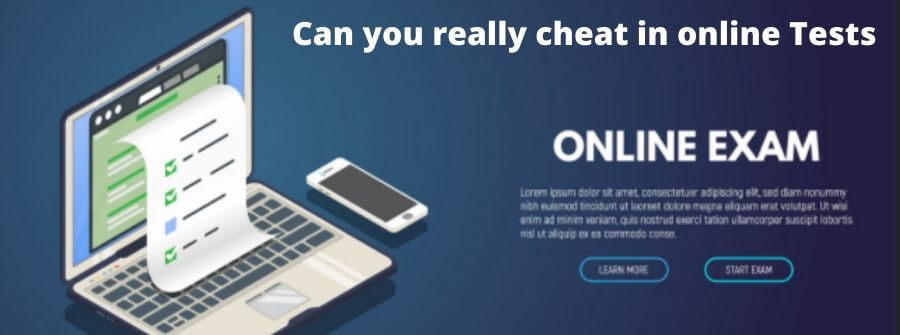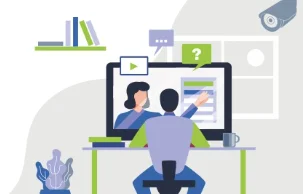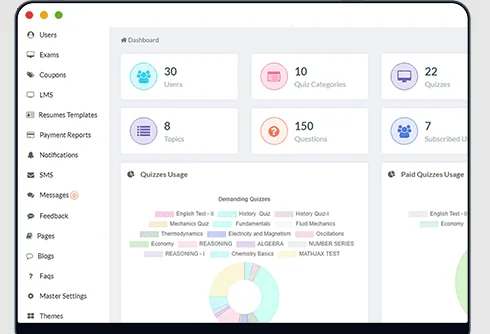Can Online Tests Detect Cheating? Switching Browsers or Tabs

When taking an online exam, there is always that temptation to find a way to get answers from your browser or google the question or even ask a friend. This brings the question of whether online tests online can detect cheating.
In this post, we will discuss that in detail and how to cheat in the online exam and bypass the measures. However, you can bypass it if you engage use our assignment help service to help you in your tests, essays, and quizzes.
In the recent past, more institutions of higher learning are embracing online courses and testing. This can be attributed to the growing demand for advanced education and technological leaps that have enabled students to take online courses in their remote locations.
Can Online Tests Detect Cheating?

Online tests can detect cheating if students cheat or violate their academic integrity policies. They catch cheats by using proctoring software, cameras, and IP monitoring.
However, without proctoring, online tests cannot detect if you cheated if you do it smartly or involve professionals in writing your work.
Students may be tempted to cheat during online tests, and it has become a real challenge that threatens the integrity of online studies and testing.
Because of this, institutions have devised various ingenious ways to enable online tests to detect cheating. Some use tools and platforms like Blackboard and Canvas, among others.
These tools and other methods are effective in not only detecting but also preventing cheating. These ways are discussed in the last section of this post – read on.
Can Online Tests Detect Switching Tabs?
If proctored, online tests can tell if you switch tabs. This is achieved through proctoring software such as Respondus Lockdown Browser. Some of you may be wondering how this is possible.
Well, proctoring software within the Respondus Browser gives this special web browser an overriding capability that enables it to control most of the important foreground and background functions of the candidate’s computer.
Such functions include the opening of new tabs or switching tabs. It is important to note that when a candidate is accessing the exam questions using the special browser, they will have opened a single tab. The browser automatically takes note of the tab.
In addition, if the student attempts to switch tabs, the browser will perceive this as an attempt to cheat. This is the reason why online tests need to tell if you switch tabs. The proctoring software may restrict the action or flag the action.
Can Proctoring Professors see if you Opened other Tabs?
The answer is yes. Your professors will be able to see if you opened other tabs while taking the online test. Professors are helped by the use of LMS educational systems like Blackboard, Canvas, or Aralinks.
And as aforementioned, online tests are given via special online programs that work in conjunction with proctoring software to monitor screen activities.
Such activities include opening other tabs. This is important because opening other tabs mean that the candidate is attempting to google answers, and this gives them an unfair advantage.
However, you may be thinking that this is dangerous and unlawful because monitoring of screen activities in your private computer infringes privacy rights. You are right because advertising companies and other malicious individuals or entities will want to gain access to your private information.
You should not worry, though. The professors will only see that you have opened other tabs but not a specific tab. They cannot access the actual information within those tabs.
How Online Tests Detect Cheating
1. The use of Proctoring Software

This is one of the most effective methods that are used to help online tests detect cheating. Proctoring software like Mettl should first be installed on the candidate’s computer before they take the test.
Such software can take the form of a web browser that locks the computer by restricting the actions of the student while doing the test.
Proctoring software can also activate surveillance devices such as microphones and webcams to monitor the actions of the candidate while taking their online tests.
Therefore, through proctoring software, online tests can detect cheating. For example, if the candidate opens a new tab to access answers, the proctoring software will forbid the action or notify the instructor.
2. Monitoring Webcams and Microphones
As we have noted, proctoring software can activate surveillance devices within the candidate’s computer. One of the devices is the webcam. Once the student gains access to the test, the webcam is activated.
The webcam monitors suspicious activities that can lead to cheating during online tests. With good proctoring, the activities of students can be captured and communicated to LMS systems like Aralinks.
Such activities include unnecessary physical movements such as eye and body movements, moving away from the webcam’s field of view, and the presence of any other person within the webcam’s field of view.
When it comes to audio, online tests can record all the sounds and voices within the candidate’s environment. This ensures that the candidate is not receiving any external help from another person.
A friend may be shouting the correct answers to the candidate, or they may be communicating via mobile devices such as smartphones and Bluetooth earpieces. Such activities are interpreted as cheating.
3. Screen Monitor and Recording Activities (Auto-Proctoring)

Proctoring software is very important when it comes to the detection and prevention of cheating during online tests. Such software achieves this through recording or monitoring the candidates’ screen activities.
This is because such activities may lead to cheating since students will open new tabs to access Google. Students may also copy and paste material from googled sources into their tests.
What proctoring software does, in this case, is to restrict the actions of the candidate while doing the test. Keyboard clicks and mouse movements can also be monitored.
This helps online tests detect cheating because unauthorized activities are interpreted as cheating attempts.
5. Conducting the tests using Blackboard and Canva
This is a very effective way institutions and instructors use to detect cheating by students during online tests. In this case, the institutions become Blackboard clients within SafeAssign to detect plagiarism, either in student essays, papers, or online test answers.
Students, on the other hand, are only allowed to access the test through special proctoring software known as Respondus LockDown Bowser.
This is a special proctoring tool that works only with Blackboard to ensure that online tests detect cheating. It should be noted there are other developers of proctoring tools.
How Online Exams Prevent Cheating

Now that we have noted online tests can detect cheating and professors or instructors can tell if you opened other tabs, it is time to explore how online exams prevent cheating.
This is because detecting cheating is not enough. Online tests may detect cheating and fail to prevent it.
As stated before, students will always be tempted to cheat during their online exams, quizzes, or even essays.
This is because they are taking them while in their remote locations away from other people.
Online exams must prevent cheating. This is achieved through the following ways:
1. Online ID Authentication to Prevent Exam Cheats
This is a crucial step in preventing online cheating. In some cheating cases during online exams, candidates recruit another person to do the exam on their behalf.
To prevent such cases, institutions should include the option to authenticate the student’s ID before doing the exam. This works concurrently with the live proctors.
When the student registers for the online course, they should provide their latest photo of themselves. This photo becomes part of their student identification.
During ID authentication, the live proctors use the webcam to compare the student’s photo within the institution’s database with the live video of the student. This will ensure that the legitimate candidate takes the exam and not the imposter.
2. Secure Web Browsers that Prevent Cheating
This is a very effective technology that ensures online exams prevent cheating. Web browsers are specially made for this task because they enable institutions to host an exam in a conducive environment in which there are predefined rules and regulations, such as which websites, programs, or applications are allowed.
An example of a secure web browser is the Respondus LockDown Bowser which, once it is downloaded and launched by the candidate, overrides the computer’s system. It gains control of the system and shuts down any unauthorized website or application running on the computer’s host operating system.
3. Auto-Proctoring to avoid Cheating
As the name suggests, this technique involves the continued usage of proctoring software throughout the exam period. In the pour guide on Canvas detecting open tabs, we discussed how they use proctoring to prevent computer activity.
What this means is that the proctoring tools activate the candidate’s webcam and microphone automatically, and they continue to run throughout the test.
They record all the sounds and footage of the candidate and their remote environment. This prevents cheating during online exams because the candidate will be aware that all their activities are being monitored.
4. Live Proctoring to Prevent Cheating
This is a combination of automatic and human proctoring. In most online courses, proctoring is used in exams and tests. This is how most online courses flag cheaters and present the evidence to their faculty for action.
In this case, the online exam is simultaneously monitored by a human proctor since auto-proctoring will be sending live video and audio feed, which is then monitored by a live proctor in real time.
5. Non-Technical Anti-Cheating Methods
There are other methods that universities and professors use to prevent cheating. The methods are basically non-technical and tend to use obvious measures and examination strategies to prohibit cheating.
Basically, these are the methods applied for thwarting online exam cheating without necessarily using proctoring software. Others try to make it almost impossible for the student to cheat, as he may be required to give practical answers.
During online exams include;
- Using 360-degree cameras
- Mixing subjective and objective questions
- Limiting feedback, randomizing questions
- Displaying one question at a time
- Setting a strict timer
Conclusion
In conclusion, online courses are here to stay. Because students take them in their remote locations, candidates will always be tempted to cheat.
However, proctoring technologies and real-time surveillance have enabled online tests to detect and prevent cheating. Even though this is the case, students should practice academic honesty.
Candidates may cheat during online testing because they are away from the examiners. However, various measures have been put in place to ensure that online tests detect cheating.
To learn more, watch the video here





